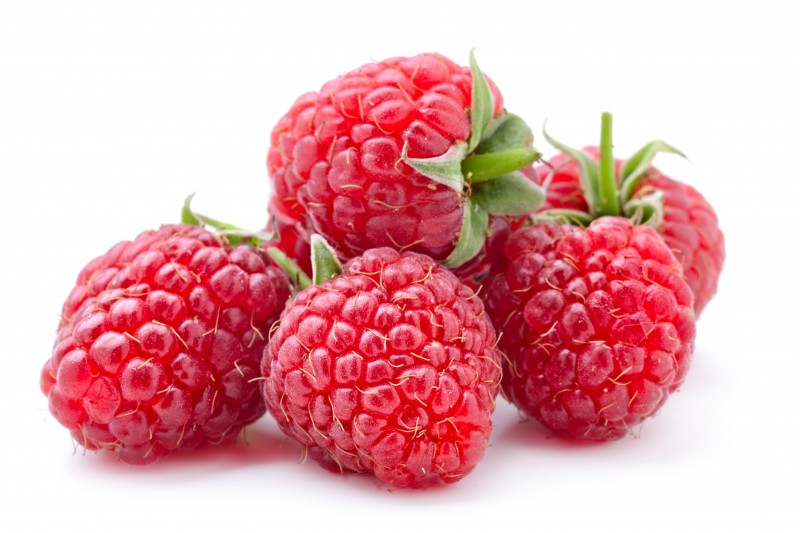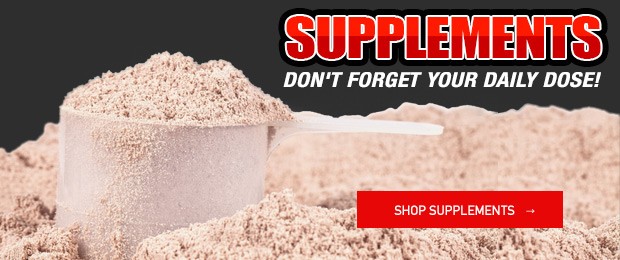
If you haven’t read the first and second installments of this series, go ahead and check them out here to gain some context for the series.
Let’s talk about raspberry ketones! This compound became popular a few years back, especially when Dr. Oz raved about it on television. But do they actually work for fat loss? Within this article, I am going to discuss what raspberry ketones actually are, where research stands on the compound's effectiveness, and why you tend to find raspberry ketones in fat burners specifically “for women.”
I’ve also made a video discussing this topic as well if you would rather listen than read.
So what exactly are raspberry ketones?
Raspberry ketone is a compound that is extracted from red raspberries, and historically used in cosmetics and processed foods for flavoring and giving things a raspberry-like smell. That seems completely unrelated to why you would consume it, but the supposed fat burning effects come from the appearance of the compound structure itself. Structurally at the compound level, raspberry ketones look a lot like synephrine and ephedrine. Synephrine and ephedrine are widely known for their fat burning properties. From that standpoint, one would think that if raspberry ketones look like other fat-burning compounds, then they probably have fat-burning qualities as well. So, they tested it.
What does the research say about raspberry ketones?
Raspberry ketones have been tested from a test tube perspective, on rats, and in one human trial. Yes, one human trial. Only one. To give you some context, supplements like creatine and whey protein have hundreds of human trials recorded.
Anyways, let’s dig into the data on the research that was done and the results of those studies. Most of the research done and data compiled on raspberry ketones was observed in vitro, or in a test tube. Within those test tube studies, they did find fat burning qualities in raspberry ketones. Some studies have been done on rats as well, and those studies also observed fat burning qualities in raspberry ketones. However, there is a catch.
First, just because an effect is observed in a test tube or even in rats, does not mean that effects will always correlate 100% to humans. Second, the dosage of raspberry ketones in both the test tube and rats was astronomically high. Raspberry ketones are simply not concentrated in the human body like they are in a test tube or even a rat. Someone would have to consume thousands upon thousands of milligrams to achieve the results the research displays.
RECENT: Creatine Supplementation: A Woman’s Perspective
So, let’s discuss the one human trial that was done. The human trial did show positive effects on fat loss when supplemented with raspberry ketones. However, the subjects of that particular study were given a blend of multiple ingredients to facilitate fat loss, not just raspberry ketones. Some of the ingredients used in that blend have already been proven to facilitate fat loss in multiple human trials already. So the results of the study as they pertain to raspberry ketones specifically are highly inconclusive. Therefore, from the current research, we can confidently say there is no evidence to suggest that raspberry ketones produce a fat-burning effect in humans.
Okay, then why are raspberry ketones found in fat loss supplements, particularly “for women” supplements?
That is a great question! Here is my opinion on this. It is very easy for the general public to not only misunderstand but also exaggerate results of research. Results are easily taken out of context and then taken as truth for every case and point. That is not saying the general public is incompetent; it is simply a reality that research data can be confusing and written in a way that may be difficult to interpret for most people. You pair that with the power of social media and celebrity platforms, and all of the sudden an ingredient with zero human efficacy is now the hype and end-all, be-all of fat loss.
That being said, even though the general public may easily misunderstand research data, it is completely irresponsible for supplement companies to follow suit. This is a clear representation of companies taking advantage of their consumers — particularly their female consumers, as raspberry ketones are widely found in “for women” fat burners. To be quite honest, when companies put raspberry ketones in their “for women” fat burners and not their “for men” fat burners, that is basically the company saying, “Ladies, we know you don’t know any better.” And that alone should piss you off! What I would suggest is that if you pick up a product off the shelf and see raspberry ketones anywhere on the label, simply put it back. Or even better, throw it in the trash.
Overall, raspberry ketones have no business in a fat burner or fat loss regimen of any kind until research proves otherwise. Don’t let fancy marketing and BS drive your purchases and supplement choices. Like I stated in the video—and as you will see below in the references—if you are unsure of any ingredient or simply want to gain some more knowledge on supplementation, Examine.com is a fantastic resource. You can look up a ton of different ingredients and see information about what the ingredient actually is, its effectiveness, dosage, and all the research that was used to develop the information provided. Unfortunately, we don’t live in a world where companies have to be honest with their products (even though there are some that are honest and are of great quality), so as consumers, educating ourselves needs to be a priority. I hope you found this article series on supplements helpful. Feel free to comment below with any questions!
References
- "Raspberry Ketone - Scientific Review on Usage, Dosage, Side Effects." Scientific Review on Usage, Dosage, Side Effects | Examine.com. Examine.com, n.d. Web. 27 Mar. 2017.












- Alycia